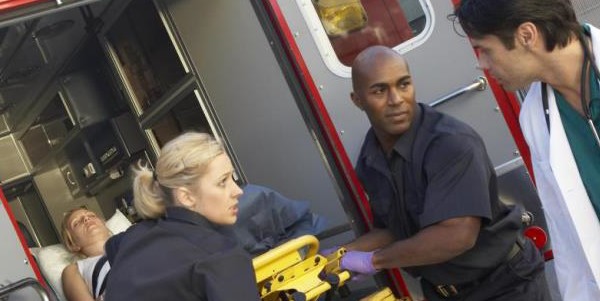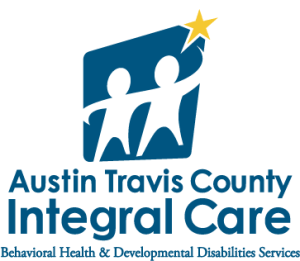
Guest article by Dawn Handley, COO of Austin Travis County Integral Care.
A mental health crisis can happen anywhere, at any time and take many different forms. In Travis County, a person who has a mental illness and is experiencing homelessness loses her medication and goes into crisis. Typically, her behavior prompts someone to call 911, police respond and she is taken to a local emergency room – not the ideal place for someone experiencing a mental health crisis. This scenario and multitudes of others play out in our community every day. A change in policy and new funding has created the opportunity to respond to individuals experiencing a crisis in a more effective way.
 In 2011, Texas pursued a new policy direction by applying to the Centers for Medicare and Medicaid Services to implement the 1115 Medicaid Transformation Waiver (1115 Waiver) across the state. The purpose of the 1115 Waiver is to change how healthcare is financed and delivered by creating a unique pay for performance program to reach 3 goals – improving health outcomes and patient experience while reducing cost of care. Entities such as Austin Travis County Integral Care put up local funds to launch innovative programs and, if implementation is successful and meets established metrics, the federal government matches every local dollar with $1.40.
In 2011, Texas pursued a new policy direction by applying to the Centers for Medicare and Medicaid Services to implement the 1115 Medicaid Transformation Waiver (1115 Waiver) across the state. The purpose of the 1115 Waiver is to change how healthcare is financed and delivered by creating a unique pay for performance program to reach 3 goals – improving health outcomes and patient experience while reducing cost of care. Entities such as Austin Travis County Integral Care put up local funds to launch innovative programs and, if implementation is successful and meets established metrics, the federal government matches every local dollar with $1.40.
Through the 1115 Wavier, Integral Care implemented an expansion of our Mobile Crisis Outreach Teams (MCOTs) to improve our community response to mental health crises. These teams provide mental health assessments and stabilization services to people experiencing crises anywhere and at any time, 24/7. Once on site, team members assess the individual and determine how best to address the crisis. Sometimes an individual can be stabilized quickly and provided referrals to ongoing care or alternatively transitioned immediately to a treatment facility such as Integral Care’s Psychiatric Emergency Services or an inpatient hospital.
With the 1115 Waiver and a grant from Travis County Integral Care developed new partnerships with first responders, including the Austin Police Department (APD), the Travis County Sheriff’s Office (TCSO) and Austin-Travis County Emergency Medical Services (EMS) to improve our community response to crisis. Today, MCOTs are co-located and co-responding with EMS, APD, and TCSO. Once a team is on scene at a crisis, when appropriate, MCOT can assume responsibility for an individual’s care. The result is that individuals experiencing a mental health crisis receive the care they need quicker and are diverted from jails and emergency rooms. This allows first responders to return to the work they are best suited for – addressing medical crises or public safety matters. In the first year of the expansion, MCOT diverted an estimated 82 percent of individuals from hospital emergency rooms and jails. MCOT’s expansion and our new partnerships enable individuals to experience better outcomes and help preserve local public resources.
 Every day we are changing the scenario for people who need help. Joe (not his real name) had been arrested for the third time in 10 days for public intoxication. This time, central booking called the Mobile Crisis Outreach Team to assess him. The team discovered that Joe was sober but experiencing acute psychosis. He wanted help and did not have a provider. MCOT was able to transport him directly to Integral Care’s 15th Street location, where he received immediate medical and psychiatric evaluation and could stay for two weeks to receive treatment. Joe avoided incarceration and inpatient hospitalization and is now connected to ongoing outpatient services.
Every day we are changing the scenario for people who need help. Joe (not his real name) had been arrested for the third time in 10 days for public intoxication. This time, central booking called the Mobile Crisis Outreach Team to assess him. The team discovered that Joe was sober but experiencing acute psychosis. He wanted help and did not have a provider. MCOT was able to transport him directly to Integral Care’s 15th Street location, where he received immediate medical and psychiatric evaluation and could stay for two weeks to receive treatment. Joe avoided incarceration and inpatient hospitalization and is now connected to ongoing outpatient services.
Integral Care is proud to partner with our first responders at APD, TCSO and EMS to ensure that our community is a safer, healthier place for everyone.
